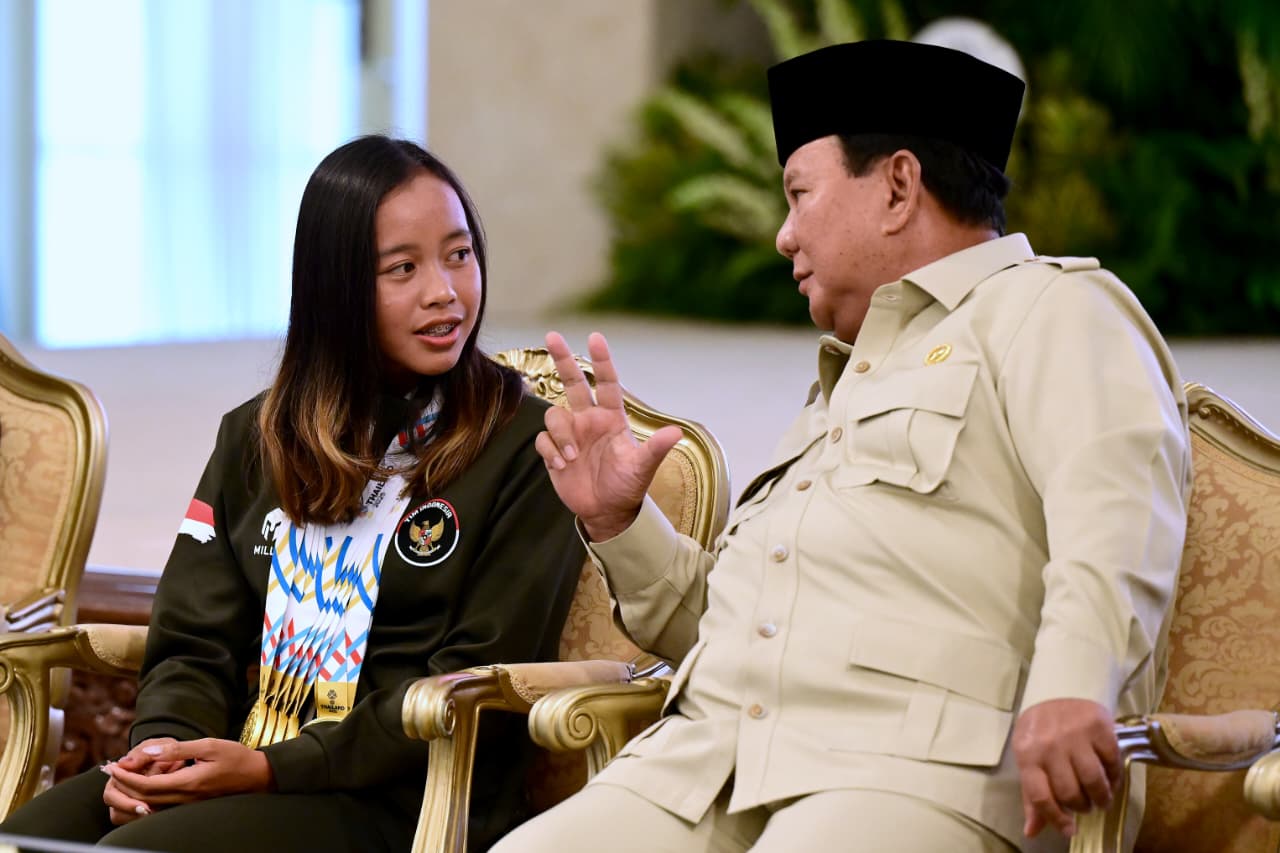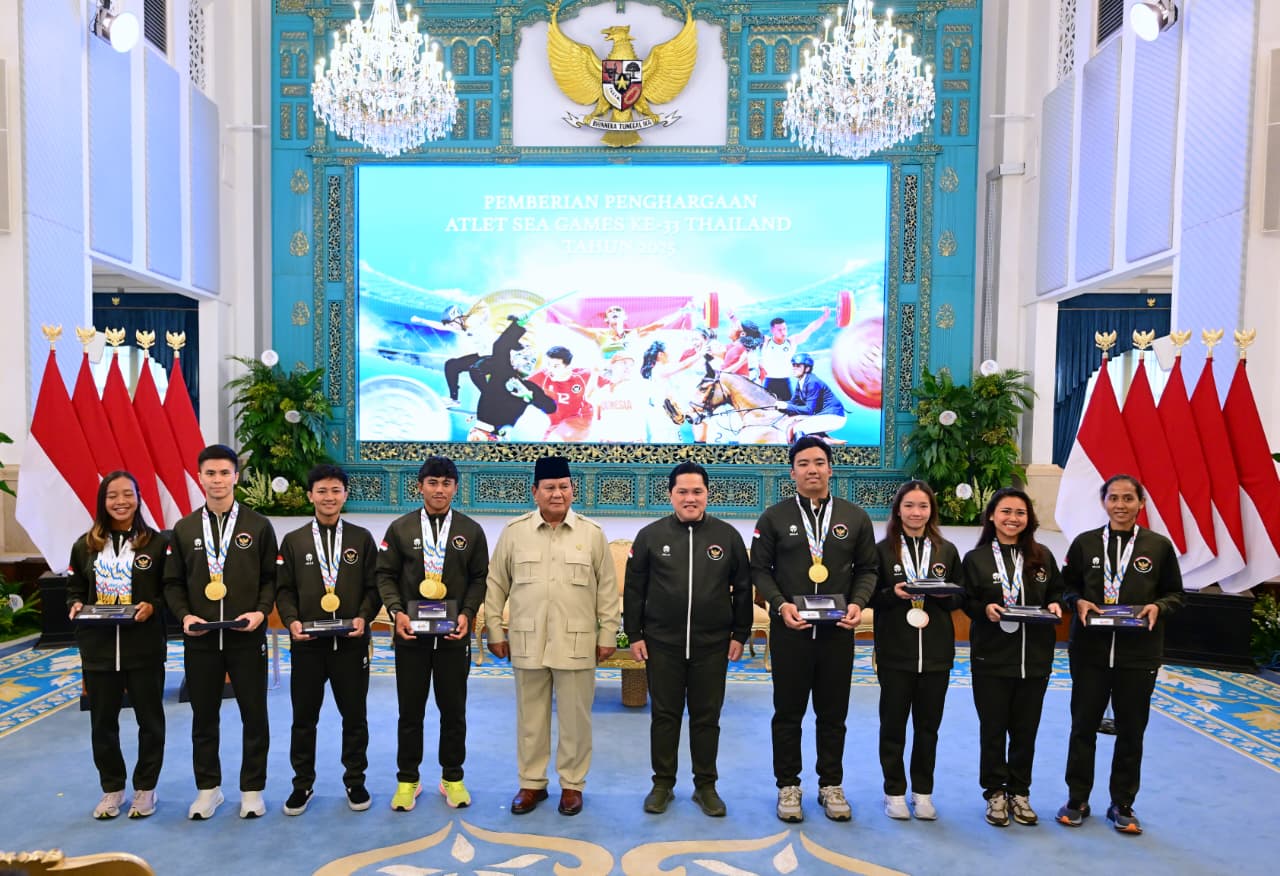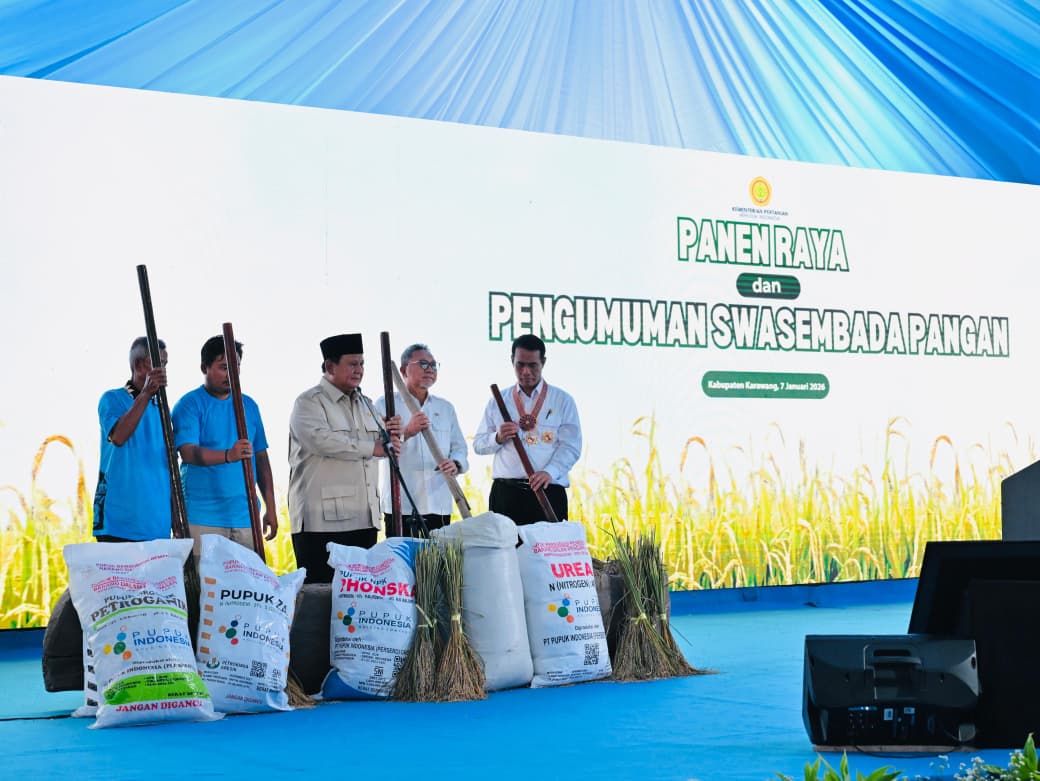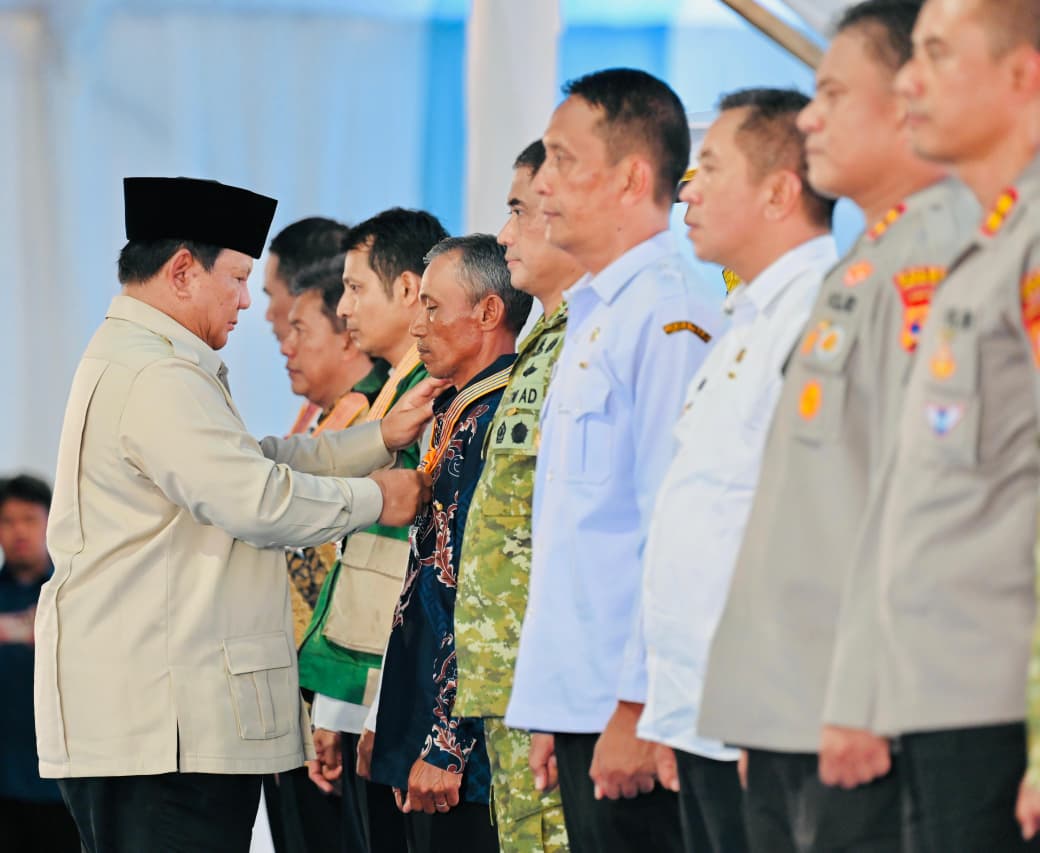Indonesia Strives to be World Largest Halal Producer
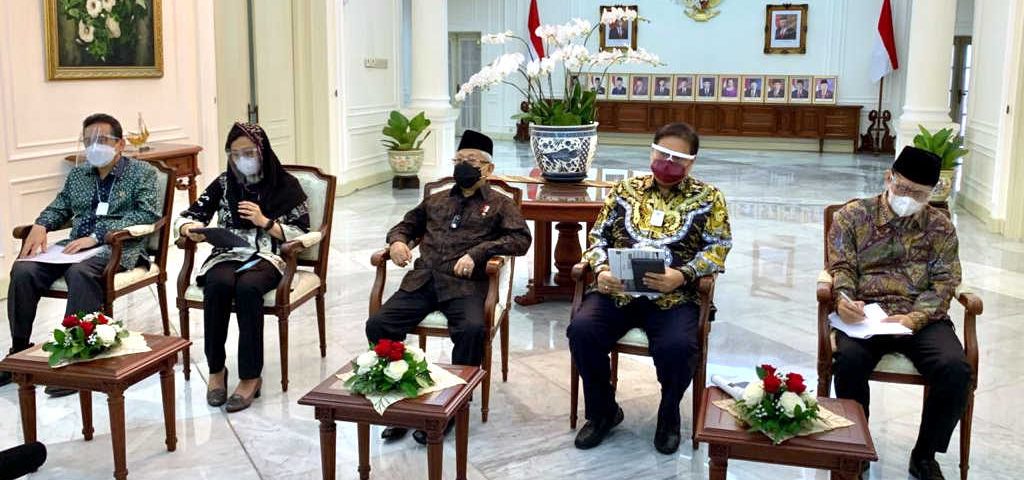
Vice President Ma’ruf Amin, accompanied by a number of ministers, gives a press statement after the National Strategic Webinar entitled “Indonesia towards the Center for World Halal Producer”, Saturday (24/10). (Photo by: KIP-Vice Presidential Secretariat)
The Indonesian Government has announced that it will strive to make Indonesia the largest halal producer in the world.
“Indonesia has great potential as both producer and consumer, therefore we want to push Indonesia to become the world’s largest halal producer,” Vice President Ma’ruf Amin said during a virtual press statement, at the Vice Presidential Palace, Jakarta, Saturday (24/10).
The Vice President stated that to achieve it, the Government seeks to develop Halal Industrial Zones (KIH) in several regions. The Government, he added, also recognized that the potential can be amplified by developing tourism areas and Islamic financial industry.
“We will develop halal industrial centers with all their ecosystems. One of them is the KIH,” Ma’ruf said.
The Vice President also said that, currently, there are two areas receiving permission from Ministry of Industry, namely Modern Cikande Industrial Estate in Cikande, West Java, and SAFE n LOCK Halal Industrial Park in Sidoarjo, East Java. “There are a total of six areas in the process. Therefore, we will continue to push,” he said.
On the occasion, Coordinating Minister for Economic Affairs Airlangga Hartarto stated that the halal industrial area will include food, beverage, fashion, pharmaceutical, and cosmetic clusters.”The availability of those clusters in one location is expected to ease the halal certification process. And also for export-oriented products, if they come from a halal area, it is expected that the sale will increase,” he said.
On the development of KIH, Minister of Finance Sri Mulyani stated that incentives, such as tax holidays and tax allowances, are needed to support the halal product industry. “We will also provide support in customs and excise. Usually, in this case, the imports of capital and raw materials will also get exemption from entry fees on imports. And also, for development in industrial estates for export purposes,” she said. (KIP- Vice Presidential Secretariat/UN)
Translated by: Fairuzzamani Inayatillah
Reviewed by: Mia M. Bonaedy





